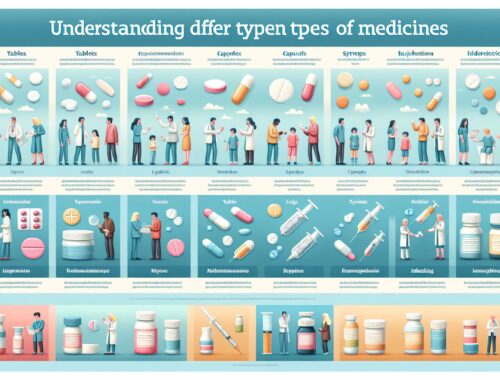
Understanding the Different Types of Medicines
Medicines play a crucial role in treating various health conditions and illnesses. There are different types of medicines available, each with its unique mechanisms of action and uses. Understanding the different types of medicines can help patients make informed decisions about their treatment options.
Over-the-Counter Medicines
Over-the-counter (OTC) medicines are medications that can be purchased without a prescription from a healthcare provider. These medicines are typically used to treat mild health conditions such as headaches, colds, allergies, and minor aches and pains. Examples of OTC medicines include pain relievers like ibuprofen and acetaminophen, antihistamines for allergies, and cough syrups for colds.
Prescription Medicines
Prescription medicines are medications that can only be obtained with a prescription from a healthcare provider. These medicines are typically used to treat more serious health conditions that require specialized treatment or monitoring. Examples of prescription medicines include antibiotics for bacterial infections, insulin for diabetes, and chemotherapy drugs for cancer.
Herbal Medicines
Herbal medicines are medications made from plants and plant extracts. These medicines have been used for centuries in traditional medicine practices and are believed to have various health benefits. Examples of herbal medicines include echinacea for immune support, ginger for nausea, and ginkgo biloba for cognitive function.
Vaccines
Vaccines are medications that are used to prevent infectious diseases by stimulating the body’s immune system to produce immunity against specific pathogens. Vaccines are commonly used to prevent diseases such as measles, influenza, and polio. Vaccines have been instrumental in reducing the incidence of many deadly diseases and are considered one of the most effective public health interventions.
Biologics
Biologics are medications that are made from living organisms or their components. These medicines are used to treat a variety of health conditions, including autoimmune diseases, cancer, and inflammatory conditions. Biologics work by targeting specific molecules in the body to modulate the immune response or inhibit disease progression. Examples of biologics include monoclonal antibodies, cytokines, and vaccines.
Conclusion
Understanding the different types of medicines can help patients make informed decisions about their healthcare and treatment options. It is essential to consult with a healthcare provider before starting any new medication to ensure that it is safe and appropriate for your specific health condition. By understanding the benefits and risks of different types of medicines, patients can take an active role in managing their health and well-being.
You May Also Like

Understanding the Different Types of Medicines
January 14, 2024
Understanding the Different Types of Medicines
April 1, 2024

